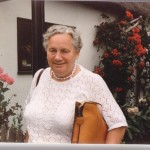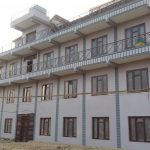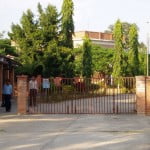Our Vision – Beating leprosy, breaking stigma and building lives.
NLT serves in areas of Nepal where leprosy is still prevalent. Our vision is to help eradicate leprosy; to overcome prejudice against those affected, and to improve people’s standard of living.
Mission Statement
NLT is a family of Christian organisations based in Nepal, Ireland and the UK. Our goal is to eradicate leprosy in Nepal and to help people affected by leprosy, and their families and communities, to lift their lives out of poverty and disadvantage and enjoy health, well being and respect. We achieve this through medical treatment, social education and village development projects, targeting individuals, small groups and wider communities. The methods we use are well proven internationally, and our programme outcomes are statistically measurable. We have been working for almost 50 years in Nepal, in partnership with other organizations working with leprosy, and in partnership with the Nepal Government.

Nepal Leprosy Trust is a Christian initiative, established in 1972 by Miss Eileen Lodge, to serve the most needy people of Nepal. It is registered as a non-governmental organisation (NGO) in Nepal, and as a Charity in England (Reg No. 1081952). The Trust is also registered as a Charity in the Republic of Ireland.
NLT in Nepal is governed by respected Nepali professionals and managers. NLT in the UK and in Ireland is governed by trustees, and exists to support the work in Nepal through receiving funds, communications, administration, and technical support.
Although the work has grown a lot during the past 25 years, it has maintained a warm ‘family’ spirit through close friendships, and a vision shared by its Nepali and expatriate workers. Visitors regularly notice and comment upon the quality, commitment and positive attitude of the staff.
NLT is committed to working with people affected by leprosy in all its programmes. It provides training to its Nepali staff, many of whom come from families affected by leprosy. Our working ethos aims to preserve the dignity of all those served.
NLT has worked to increase Nepali leadership within the organisation, and NLT in Nepal is now an autonomous organization led and managed by Nepalis. The Chief Executive of NLT in Kathmandu and the Programme Director of Lalgadh Leprosy Services Centre are both Nepalis who have served with NLT for many years. NLT in the UK and Ireland, and NLT in Nepal, all regard themselves as part of the “NLT Family” with a shared vision and a shared Christian ethos.
The work of NLT in Nepal is based in two areas:
The Headquarters in Kathmandu is in the Lalitpur area and deals with the main organizational relationships with Government departments, etc, and provides logistical support to the Leprosy Hospital and Services Centre at Lalgadh, and looks after leprosy patients who have to travel to Kathmandu for specialized treatment.

The Kathmandu Headquarters also houses three separate projects.
- Himalayan Handicrafts is a sheltered workshop staffed partly by people affected by leprosy and other disabilities, and also people who have been marginalised by poverty, and other causes. Himalayan Handicrafts is part of the Nepal Fair Trade Group and exports high quality leather, cloth, felt, and batik goods around the world. Some of these products can be purchased from our Richmond office or our Ebay shop. You can see more about Himalayan Handicrafts under “Kathmandu” in the menu above.
- Lydia Children’s Fund sponsors children from very poor backgrounds to enable them to go to school. Obtaining education in Nepal is still a challenge for many families who live on little more than the equivalent of a dollar a day, and yet many now value education much more highly than was the case 25 years ago. Lydia Children’s Fund encourages sponsors to support very needy families with £15 a month, to allow their child to go to school. The child has to submit school reports to our office and writes to sponsors at Christmas. All the funds supplied by a sponsor, go to the family concerned. There are currently about 70 children supported in this way. You can see more about Lydia Children’s Fund under the menu “Get Involved”
Lalgadh Leprosy Hospital and Services Centre is based in a village in southeast Nepal, called Lalgadh, next to the Ratu River, on the East-West Highway about 90 kilometres east of Patalaya and about 30 kilometers north and west of Janakpur.
You can see the Centre on Google Earth – coordinates are 26 degrees 59 minutes and 30 seconds North and 85 degrees and 55 minutes East.
Lalgadh Leprosy Hospital and Services Centre (LLHSC) is NLT’s largest project. The Government of Nepal gave permission for its

construction in 1990 and provided a free lease for about 17 acres of land. NLT took on an obligation to build the Centre, provide staff and finances to run it, and establish, monitor and develop appropriate programmes. LLHSC began to receive patients in 1993 and was officially opened in 1996. It is now one of the busiest Centres of its kind in the world – in terms of new cases – with 900 to 1100 new cases diagnosed each year. As well as around 10,000 visits by leprosy patients seeking help each year, it also receives over 75,000 visits each year from people needing help for general medical problems – mainly skin diseases. Many come because of the excellent reputation that LLHSC has earned over the years since it opened.
NLT in the UK funded LLHSC’s construction through generous donations, mostly from private individuals, at a total cost of approximately £650,000. These construction costs have been met in full.
In 1986, NLT’s total annual income was just £12,000. However, the work has since grown to the point where the total running costs of the Centre and its programmes are over £500,000 per year. Despite the dramatic increase, this is still a remarkably low figure in view of the large number of people who visit the Centre each year for help and treatment.
Those affected by leprosy receive all treatment, food and drugs free of charge, although they do make a small

payment, equivalent to about 50 pence, towards their special footwear. This makes it more valuable to them and they take more care of it as a result. Non-leprosy out-patients and in-patients are asked to pay for the basic cost of their treatment, although some are not able to do so, and LLHSC tries to help them when it can, using funds collected for supporting the very poor.
Funding
A proportion of NLT’s financial support comes from individuals around the world, many of whom have given faithfully for a number of years.
A small part of NLT’s total income is from the sale of fair-trade Nepali products, mainly those manufactured in NLT’s own income generating projects in Kathmandu. Any profits from local and export sales help to support NLT’s social welfare projects in Kathmandu.
Further income is generated by the sale of low-cost medicines and basic health services to general patients who come to LLHSC for help. We have expanded our general services in certain areas to increase the revenue we make and thereby help to subsidise our leprosy work.
NLT receives regular grants from several organisations that support leprosy control and prevention-of-disability projects around the world, including:
Sasakawa Health Foundation, and
American Leprosy Missions (ALM)
amongst others
NLT has also benefitted from a number of grant-making trusts that share its aims and objectives. It is looking to build further relationships with trusts willing to support its work both on a one-off or regular basis.
Employment and Staffing
NLT employs, either directly or through its income generation projects, about 150 Nepalis, 125 being at LLHSC.

Under its agreement with the Nepal Government, NLT has permission to employ some expatriate professionals from abroad, if necessary, but in practise this is now quite difficult. LLHSC currently employs 5 Nepali doctors and has one expatriate doctor, as well as Nepali nurses and paramedical workers. NLT has also sponsored a number of young Nepali doctors during their training.
NLT’s workshops in Kathmandu provide employment for people affected by leprosy and other disadvantaged groups.
Administrative expenses in the UK are low, since offices are donated to the Trust, and the Directors and Trustees are unpaid volunteers. There are 2 part-time paid UK staff.